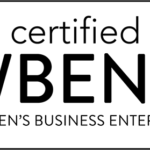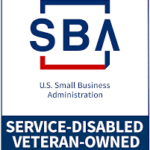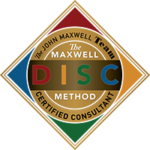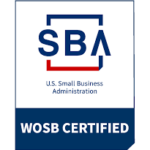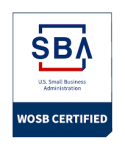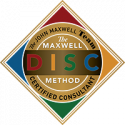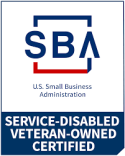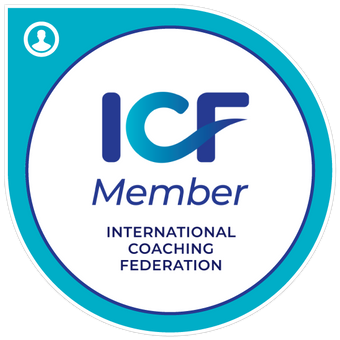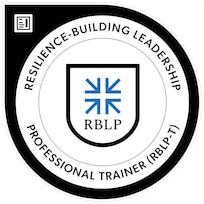Even though imposter syndrome can affect individuals from all walks of life and across various professions, women are one group that experiences imposter syndrome more frequently. Let’s dive deeper into the ‘why’ and look at some ways to address it.
Defining Imposter Syndrome (IS)
Imposter syndrome refers to a psychological pattern in which individuals doubt their accomplishments and have a persistent fear of being exposed as a fraud, despite evidence of their competence.
Root cause

Among the most common reasons, societal factors, such as gender stereotypes, imbalanced representation in certain fields, and internalized self-doubt, can contribute to women feeling like imposters despite their accomplishments. Let’s take a closer look at 3 key reasons behind imposter syndrome that stem from those root causes.
- Cultural or societal expectations: Societal pressures and expectations, such as stereotypes or biases, can contribute to feelings of being an imposter. When society & culture dictates where a woman should be, what a woman should and should not do, wear, think, say, etc..… When a woman steps out of these boundaries, imposter syndrome spikes due to the feeling of being an outcast, not good enough, and not doing the right thing.
- In work settings, the aforementioned phenomenon especially vividly manifests itself in male-dominated industries where women are constantly victims of sexist commentary and do not have many women executives and role models.
- Perfectionism: Setting excessively high standards for oneself and feeling like anything less than perfect is a failure. As a result, setting the bar too high and moving it higher every time it is reached can cause resentment, anxiety, and self-doubt.
- Early-life experiences: Negative feedback or criticism during childhood or early adulthood can lead to a lack of self-confidence and feelings of inadequacy. These experiences could create a habit of self-judgment and fear of others’ judgment.

Common signs

While imposter syndrome can manifest differently for each individual, some common signs and symptoms include:
- Self-doubt: Persistent questioning of one’s abilities, skills, or accomplishments, despite evidence to the contrary. Statistically, women apply for a new job only if they meet the qualifications at 100%. Men, on the other hand, apply for a job if they qualify at least 60%.
- Overachievement: Engaging in excessive work or striving for perfection to compensate for feelings of inadequacy. The sensation of needing to always prove worthy and relevant, especially when it comes to the work environment. Overachievement is oftentimes accompanied by a feeling of burnout and anxiety.
- Fear of failure: An intense fear of making mistakes or being exposed as incompetent, often leading to avoidance of new challenges or opportunities. Getting stuck in the comfort zone in order to avoid the risk of exposing any flaws.
How to push through imposter syndrome
Even though there is no magic wand that makes imposter syndrome, which has been building up in an individual for years, disappear overnight, minimizing to fully removing imposter syndrome is still possible. It’s important to remember that it’s a gradual process which involves shifting your mindset, building self-confidence, and adopting healthier perspectives. Here are some effective strategies that can help you overcome imposter syndrome:
- IT PM Program: This is the first technique. IT PM Program recognizes and acknowledges your achievements by writing them down and revisiting them when in self-doubt. The key nuance to getting the maximum out of this technique is to make it a repetitive process. As part of the IT PM Program, we have incorporated #IAmRemarkable workshop, where we teach women to recognize imposter syndrome and encourage them to incorporate Remarkable Wednesdays as a way to jot down and acknowledge their achievements on a weekly basis.
- Reframe failure: Instead of viewing failure as a confirmation of your incompetence, reframe it as an opportunity for growth and learning. Every success story is preceded by a number of failures. Embrace challenges as chances to develop new skills and gain experience. And also, ask yourself the question: is it better to try and potentially fail or not do it at all? Is it better to try and apply for that job or voice your request for a pay increase or promotion, to start your own business, or stay where you are? If you fail – you remain where you are and gain new lessons learned and experiences, if you don’t try at all – then you have already failed. The next tactic flows from this point is:
- Embrace imperfections: Accept that perfection is unrealistic and that making mistakes is a normal part of life. Embrace the learning opportunities that come with challenges and understand that setbacks do not define your worth or competence. Also, what may seem as an imperfect job done to you might seem unachievable to others.
- Seek support and mentorship: Engage with mentors, coaches, or therapists who can provide guidance, perspective, and support. They can help you navigate imposter syndrome and provide strategies to overcome it. Remember that you don’t have to do it alone. XcelMil has partnered with IT Creative Labs to provide short and long-term solutions. As an executive management consulting firm, we believe investing in people is non-negotiable. Whether a micro company or a large firm, people are an organization’s number one asset. Further, some women may not serve in corporate America, the public or nonprofit sector however, their personal development is still of great import. That is why we provide what we call “wrap-around training support.” We offer high-demand, in-demand, self-paced micro courses. Many of the courses can lead to industry-recognized certificates, whereas others may be courses of general interest. For instance, women can enroll in courses to advance their careers, financial planning, build confidence, business etiquette, learn how to update their LinkedIn profile, understand and apply generational intelligence, and learn how to effectively manage remote teams, etc.
- Employ coaching: We understand knowledge retention is key in anyone’s learning journey, yet we maintain knowledge without application is pointless. Studies show learners tend to forget approximately 50% of new information within a few days or weeks if no effort is made to reinforce or retain it. That is why we supplement our learning with one-on-one coaching. We are confident this element adds a neutral, unbiased, trusted, psychologically safe space for women leaders. Moreover, it is important women have this space to share their professional and personal aspirations, dreams, career goals, small-to-large wins, accomplishments, problematic issues at work, home, challenging decisions, or fears. In short, women leaders can undergo a journey of self-discovery with an accountability partner. Sessions can range from 30 minutes to one hour, depending on their schedule, by phone or video call. The duration of the coaching sessions can range from a 90-day period up to 1-year.
You are not alone:
Remember that overcoming imposter syndrome takes time and effort. Be patient with yourself and remember that you are not alone in experiencing these feelings. A recent KPMG study has found that 75% of female executives across industries have experienced imposter syndrome in their careers. By implementing the aforementioned strategies and seeking support, you can gradually overcome imposter syndrome, cultivate a healthier mindset and perhaps become a role model for a fellow woman.
Imposter Syndrome Quote
“She explained that many people, but especially women, feel fraudulent when they are praised for their accomplishments. Instead of feeling worthy of recognition, they feel undeserving and guilty, as if a mistake has been made. Despite being high achievers, even experts in their fields, women can’t seem to shake the sense that it is only a matter of time until they are found out for who they really are- impostors with limited skills or abilities.” ― Sheryl Sandberg
Notable women who overcome #imposter syndrome
- Maya Angelou: The acclaimed poet and author once said, “I have written eleven books, but each time I think, ‘uh oh, they’re going to find out I’ve run a game on everybody, and they’re going to find me out.'”
- Sheryl Sandberg: The Facebook COO and author of “Lean In” has spoken about her own experiences with imposter syndrome, noting that she often felt like a fraud in her early
- Emma Watson: The actress and activist has opened up about her struggles with imposter syndrome, saying, “It’s almost like the better I do, the more my feeling of inadequacy actually increases because I’m just going, ‘Any moment, someone’s going to find out I’m a total ‘”
- Sonia Sotomayor: The first Latina Supreme Court justice has discussed her feelings of imposter syndrome in her memoir, “My Beloved World,” noting that she often felt like she was “faking it” during her early career.
- Michelle Obama: The former First Lady has spoken about her struggles with imposter syndrome, admitting that even as First Lady, she sometimes felt like she wasn’t good enough.
Key Takeaways
- I will recognize the root cause of my imposter
- I can and will employ multiple strategies for overcoming #imposter
- I will exercise patience by recognizing it takes time to overcome #imposter syndrome.
- I will research and contact the appropriate resources for
- I understand failure is not final.
- I will schedule time for personal and professional self-
- I understand that challenges help me grow as a professional and a
Resources
https://www.forbes.com/sites/lucianapaulise/2023/03/08/75-of-women-ex ecutives-experience-imposter-syndrome-in-the-workplace/?sh=40d67007 6899
https://iamremarkable.withgoogle.com/ https://itpm.training/ https://xcelmil.com/
https://www.entrepreneur.com/leadership/12-leaders-entrepreneurs-and- celebrities-who-have/304273
Book a consultation with us now! Please do not hesitate to contact us with any questions. We would love to hear from you. Email at [email protected].
Click here https://xcelmil.com/xcelmil-coaching-and-consulting-services/ to learn more about our services.
Twitter: https://twitter.com/GraticMelody
LinkedIn: https://www.linkedin.com/in/melodygraticconsulting/
XcelMil, LLC is a certified Minority-Woman and Service-Disabled Veteran-Owned Small Business specializing in Executive Management Consulting and Leadership Development Training.











